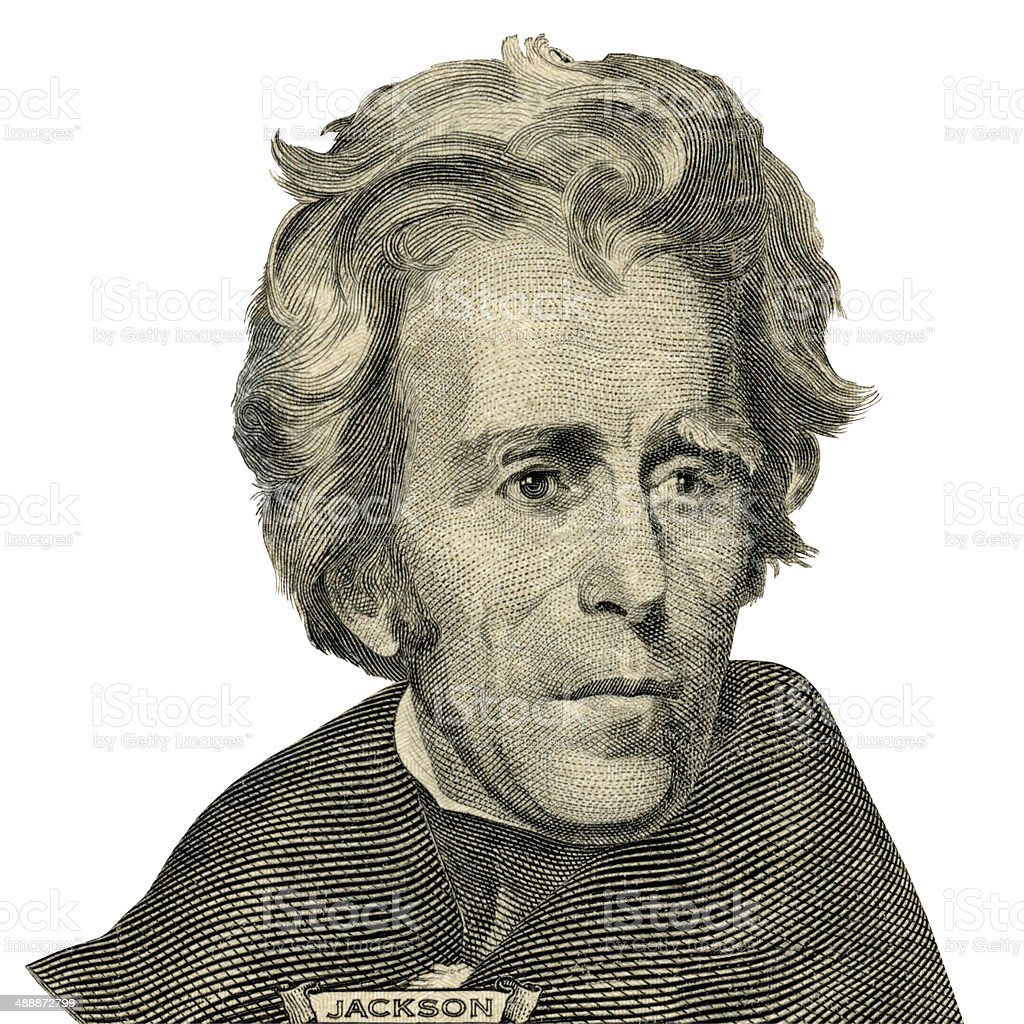The Vindication of Andrew Jackson
Jackson

In all of the history of the United States the only President to eliminate the national debt was Andrew Jackson. No other President since has been able to reign in government spending the way that Andrew Jackson did. Lincoln and Kennedy tried but both were assassinated before their policies actually made an impact on reducing sufficiently the nation's debt. More nearly than any of his predecessors, Andrew Jackson was the one that was elected by popular vote. In as such, President Jackson sought to act as the direct representative of the common man much to the chagrin of the entrenched powers that be at the time in Washington. Sounding all too familiar to today's realm of reality in D.C. Where entrenched elected officials reign supreme over a bewildered and suffering public.
But who really was Andrew Jackson? Historians depict a man from humble beginnings. A rambunctious youngster who saw first-hand the horror of war during the American Revolution. It just could very well be that during the Revolutionary War Andrew developed the inner strength that was to characterize many of his personal beliefs. His deep-rooted animosity toward the British stemmed from the first impressions that resulted from his capture by the British. The almost lethal punishment from not obeying British Commanders had a lifelong effect on what Andrew Jackson did as he got older. This is one of many instances that personified Jackson's character.
It was Jackson’s first biographer, James Parton that described him this way: “Andrew Jackson, I am given to understand, was a patriot and a traitor. He was one of the greatest of generals, and wholly ignorant of the art of war. A writer brilliant, elegant, eloquent, without being able to compose a correct sentence, or spell words of four syllables. The first of statesmen, he never devised, he never framed a measure. He was the most candid of men and was capable of the profoundest dissimulation. A most law-defying, law-obeying citizen. A stickler for discipline, he never hesitated to disobey his superior. A democratic autocrat. An urbane savage. An atrocious saint."
Born in a backwoods settlement in the Carolinas in 1767, he received sporadic education. He never did learn to write correctly. It was after his mother and his two other brothers that died during the Revolutionary War when in his late teens, he began to read law by apprenticing under prominent lawyers of the time. After two years of study he, himself became an outstanding young lawyer in Tennessee. It was his fiery temper though that got him into trouble. Fiercely jealous of his honor, he engaged in many brawls, and even sustained wounds from a duel defending the honor of his wife, Rachel. Wounds that Jackson would carry for the remainder of his life.
When historians today tell of the Presidency of Jackson many are quick to judge him as indefensible toward his treatment to slavery and the native Americans. But we have to remember the times that Jackson lived in and the experiences that played out during his youth, and his military career. Violent confrontations were a fact of life in the early part of the 1800's. So, it should come to nobody's surprise when the American Indian Removal Act passed Congress which Jackson engineered. To Andrew Jackson when all his life he fought Indians that assaulted settlers the Removal Act was justified. The Trail of Tears that ensued was a horrific act of human suffering that put a black mark on an otherwise successful Presidency.
In his first Annual Message to Congress, Jackson recommended eliminating the Electoral College. He also tried to democratize Federal office holding. Already state machines were being built on patronage, and a New York Senator openly proclaimed, "that to the victors belong the spoils. " Jackson took a milder view. Decrying officeholders who seemed to enjoy life tenure, he believed Government duties could be "so plain and simple" that offices should rotate among deserving applicants.
But it was the Bank of America that Jackson dealt the final blow to an institution that played heavily in increasing the nation's debt. Much like today with the Federal Reserve where the issuance of money loaned to the Federal Government increases our debt with every interest bearing noted. When someone like Jackson took on the Bank of America and failed to renew its charter the money loaned to the government at interest ceased. This was one of the most crucial factors in producing a debt free federal government. For all of Jackson's efforts he was the first President to face and survive an assassination attempt.
Today, where are the Jacksonian policies when this nation needs them most? With our debt soaring through the stratosphere, entrench politicians callous attitudes toward the public continue to prevail, and where the liberties of our society have all but disappeared have all divided a nation. Sure, there are some instances today where congress can issue change but all too often that change is too late and really a dollar short. It seems that our whole nation is crying out for leadership that typifies what Andrew Jackson brought to this young nation when it needed it most.
About the Creator
Dr. Williams
A PhD in Economics. Author of National Economic Reform's Ten Articles of Confederation.






Comments
There are no comments for this story
Be the first to respond and start the conversation.